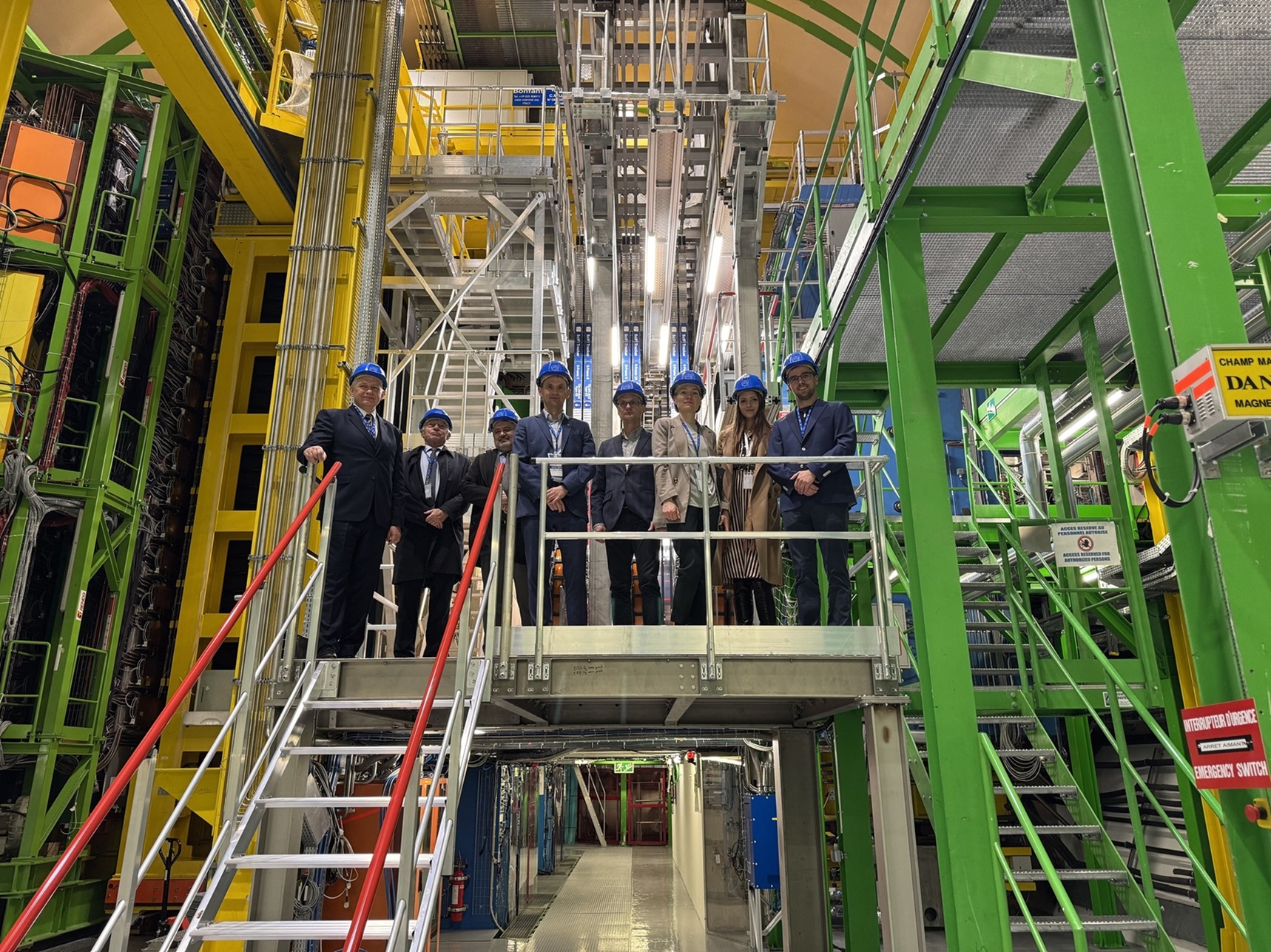A delegation from the Faculty of Physics visited CERN this week.
"This is the first-ever visit of the Faculty's leadership in the history of Vilnius University. Not only did we have a very close look at the LHCb experiment, which Vilnius University became a part of in September, but we also discussed how to apply the existing competencies more broadly to various CERN initiatives," - said Pranciškus Vitta, Vice Dean for Science and Strategic Development.

"We are strengthening our involvement in CERN activities. The Faculty of Physics already has many scientists working on CERN projects. However, during our communication with CERN scientists, we constantly hear from them that there is still a lot of knowledge and know-how at Vilnius University and in Lithuania that could be very useful to CERN projects. First and foremost, Lithuanian lasers, but not only them," emphasized Prof. Ramūnas Aleksiejūnas, a physicist at Vilnius University and Executive Director of the CERN Consortium in Lithuania.
Rūta Racz, the first-ever PhD student at the Faculty of Physics to work on the analysis of LHCb data and the search for pentaquarks, was also part of the delegation. "Particle physicists and theoreticians are actively developing models, trying to explain the mechanisms of production and decay of pentaquarks. The analysis of pentaquarks is particularly challenging and unprecedented in Lithuania. The LHCb Vilnius group, whose newest member is a PhD student, Rūta Racz, will analyze the largest dataset in the history of Lithuanian science. By doing this, we will contribute to the most fundamental research trying to explain the nature and evolution of the Universe", said Dr. Mindaugas Šarpis.
During the visit, meetings were held with the management of CERN and the LHCb experiment as well as participating scientists. The delegation visited the CERN Data Centre, the LHCb detector, the CERN Control Centre, the Antimatter Factory, and other facilities.
CERN - The European Organization for Nuclear Research is not only the largest particle physics laboratory in terms of infrastructure, but the experiments carried out there bring together scientists from more than 100 different countries.
